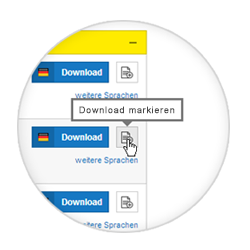Radar is the better ultrasonic!
VEGA have 30 years experience in process radar technology. A new era in radar level measurement began a few years ago when VEGAPULS sensors with 80 GHz technology were introduced for liquids and bulk solids level. Thanks to the more precise focusing of the radar beam, the sensor virtually eliminates any unwanted or interfering reflections and the level measurement therefore becomes much easier and more reliable. Many difficult measuring tasks for ultrasonic sensors are now becoming standard practice to solve with radar technology, like open channel flow, storm overflows, lime silos, chemical tanks, digesters and open water river gauging.
VEGA has added a new compact 80 GHz radar series to its portfolio of radar sensors. It is designed to be price competitive for water applications, such as those found in the water/wastewater industry or in auxiliary process loops in process automation. Within this, VEGA have designed their own new radar microchip, characterized by its extremely small size, fast start up time, high sensitivity and low energy consumption. The end result is a particularly compact and versatile radar sensor with excellent performance characteristics.
Robust, unaffected and weatherproof
Focus and no blocking distance
Compact, yet happy to team up
Simple setup thanks to wireless operation
Both the sensors and the controllers can be operated via Bluetooth with a smartphone or tablet. This makes set up, display and diagnostics considerably easier, especially in harsh environments or in hazardous areas.
The new VEGAPULS radar instrument series offers many advantages over current ultrasonic level measurement technologies. Thanks to their better all-conditions reliability, ruggedness, simple operation and, last but not least, low price, it’s the obvious choice for the modern water and environmental industries.
More information available at www.vega.com/vegapuls
Export this article
Download as PDFShare this article
Comments ({{comments.length}})
{{getCommentAuthor(comment, "Anonymous")}} {{comment.timestamp | date : "dd.MM.yyyy HH:mm" }}
{{comment.comment}}







